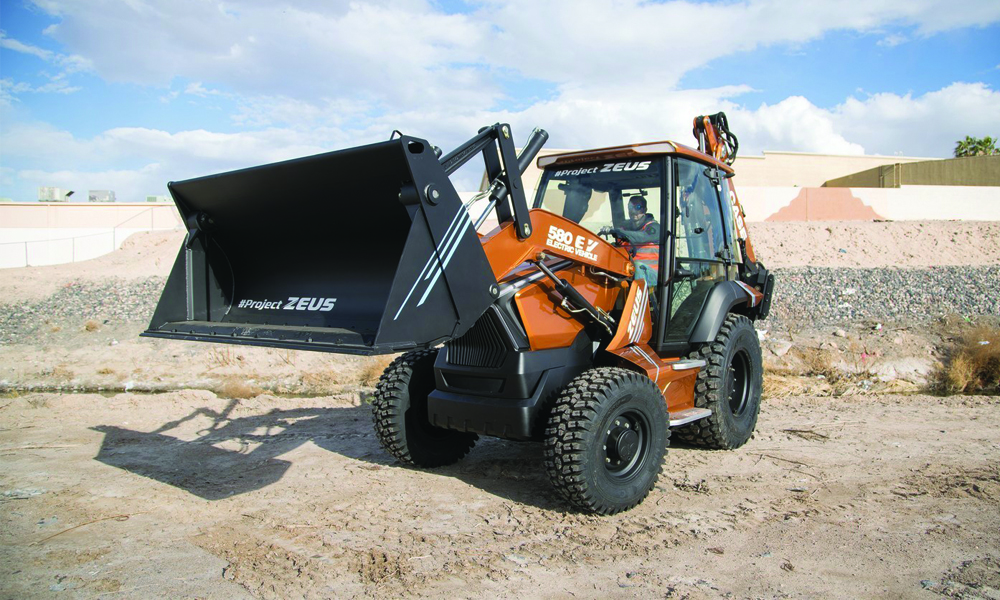Case Construction Equipment has launched the first ever fully electric backhoe loader at the recently concluded Conexpo exhibition in Las Vegas, USA.
Introduced at the event as “Project Zeus”, the CNH Industrial Group company’s 580 EV (Electric Vehicle) backhoe loader offers power and performance equivalent to other diesel-powered backhoes in the Case product line, said a statement from the company. Among its advantages is considerably lower daily operating costs along with zero emissions, Case added.
“The 580 EV is a significant step forward in our commitment to sustainability, the evolution of earthmoving equipment and a truly practical innovation that drives real savings and competitive advantages for backhoe owners,” said Leandro Lecheta, head of construction equipment, North America, CNH Industrial.
According to Case, the 580 EV is powered by a 480-volt, 90-kilowatt-hour lithium-ion battery pack that can be charged by any 220-volt/three-phase connection. While applications will vary, each charge will support most common eight-hour workdays.
The battery separately powers the drivetrain and hydraulic motors, resulting in hydraulic breakout forces equal to diesel-powered machines and improved performance during simultaneous loader and drivetrain operation.
The statement added that the machine is particularly relevant for civic bodies such as city governments and municipalities, which will also benefit from the elimination of emissions for working in urban environments and close to other buildings/people, as well as the reduced noise generated by the equipment.
“While every application will be different based on its workload, it is estimated that the 580 EV could save fleets as much as 90% in annual vehicle service and maintenance costs when taking into account the reduction/elimination of diesel, engine oil, diesel exhaust fluid, regular preventive maintenance and long-term engine upkeep/maintenance (and the associated labour rates and time savings),” the statement added.
With two units having already been sold to utilities in the USA, the first deliveries will take place this year in the current quarter and the next, said Case, adding that it has the capability to produce additional units throughout 2020 before ramping up production to meet greater demand in following years.
